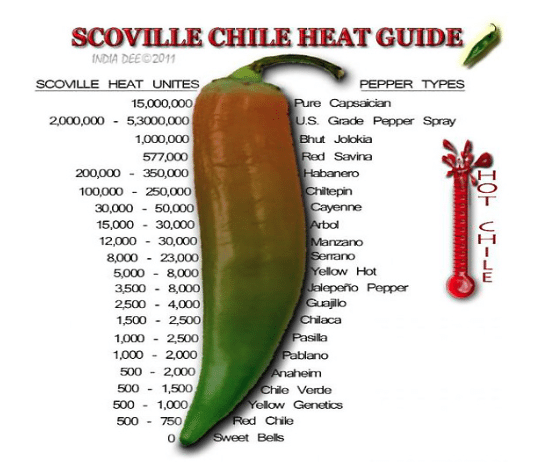A facilitator should typically avoid the term “happy”.
Our effort guides a group to a common or shared understanding that they can support and not lose any sleep over—something they can “live with.” Consensus does NOT mean that they are going to end up “happy.”
Look closely at the difference in meaning between the terms ‘objective’ and ‘subjective’. The ‘object’ is that outside of us that is being perceived. The ‘subject’ is the perceiver. In business, we frequently use the term ‘objective’ as something we intend to accomplish or realize. We use the term ‘subject’ when we are referring to meeting participants, or ‘subject matter experts’.
Subject matter experts, aka SMEs, express their preferences, requirements, needs, priorities, likes, dislikes, etc. about ‘objects’ or things outside of their immediate control. Two people eating chili for example may disagree on the chili’s level of spiciness. What is really hot to one person may be tepid to another. They are experiencing separate realities; they are reacting differently to the same object (the spiciness of the chili).
No amount of argument will get them to agree on whether the chili is too spicy or not. Clearly, to one, it is, while to the other it is not. They are both right from their subjective points of view. The wrong approach would be to encourage them to meet halfway and call the chili semi-spicy. That would be like suggesting one with their left foot in a pail of hot water and their right foot in a pail of freezing water should on average, be comfortable.
Objectify the Subjective
Therefore a world-class facilitator strives to ‘objectify’ the subjective. Meaning, that they strive to find a common ground between both parties to which both parties agree without compromise. In the case of spiciness, we might be able to get both parties to agree that the chili is neither hot nor tepid, rather they might agree that it measures 3,000 Scoville units (i.e., the measure of pungency or the amount of capsaicin that makes peppers ‘hot’). The truly objective rating of the spiciness does not make either participant “happy” but it does give them a common ground about which they can argue for more or less in the specific, rather than the general.
While one may argue for more ‘heat’ and another argues for less ‘heat’ we can now more effectively facilitate precisely what is meant by heat, and wisely offer options such as offering two or three types of chili.
We are seeking agreement or consensus rather than making participants “happy” so please be careful when using the term, or similar terms that are “qualitative” by description but can be made “quantitative” through strong challenge, clear definitions, and excellent facilitation.
______
Don’t ruin your career by hosting bad meetings. Sign up for a workshop or send this to someone who should. MGRUSH workshops focus on meeting design and practice. Each person practices tools, methods, and activities every day during the week. Therefore, while some call this immersion, we call it the road to building high-value facilitation skills.
Our workshops also provide a superb way to earn up to 40 SEUs from the Scrum Alliance, 40 CDUs from IIBA, 40 Continuous Learning Points (CLPs) based on Federal Acquisition Certification Continuous Professional Learning Requirements using Training and Education activities, 40 Professional Development Units (PDUs) from SAVE International, as well as 4.0 CEUs for other professions. (See workshop and Reference Manual descriptions for details.)
Want a free 10-minute break timer? Sign up for our once-monthly newsletter HERE and receive a timer along with four other of our favorite facilitation tools, free.

Terrence Metz, president of MG RUSH Facilitation Training, was just 22-years-old and working as a Sales Engineer at Honeywell when he recognized a widespread problem—most meetings were ineffective and poorly led, wasting both time and company resources. However, he also observed meetings that worked. What set them apart? A well-prepared leader who structured the session to ensure participants contributed meaningfully and achieved clear outcomes.
Throughout his career, Metz, who earned an MBA from Kellogg (Northwestern University) experienced and also trained in various facilitation techniques. In 2004, he purchased MG RUSH where he shifted his focus toward improving established meeting designs and building a curriculum that would teach others how to lead, facilitate, and structure meetings that drive results. His expertise in training world-class facilitators led to the 2020 publication of Meetings That Get Results: A Guide to Building Better Meetings, a comprehensive resource on effectively building consensus.
Grounded in the principle that “nobody is smarter than everybody,” the book details the why, what, and how of building consensus when making decisions, planning, and solving problems. Along with a Participant’s Guide and supplemental workshops, it supports learning from foundational awareness to professional certification.
Metz’s first book, Change or Die: A Business Process Improvement Manual, tackled the challenges of process optimization. His upcoming book, Catalyst: Facilitating Innovation, focuses on meetings and workshops that don’t simply end when time runs out but conclude with actionable next steps and clear assignments—ensuring progress beyond discussions and ideas.




